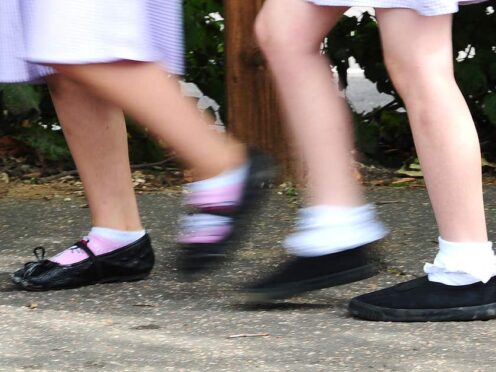A generation of children in Scotland are at risk of losing out on the benefits of sporting activities following a significant drop in levels of participation during the pandemic, a report has warned.
The paper highlights analysis suggesting memberships of sports which take place indoors among youngsters dropped by 40% as a result of restrictions put in place to curb gatherings during the health crisis.
The research also found the number of sporting competitions held in Scotland involving under-18s remains well below pre-pandemic levels despite the country having long returned to normal since the outbreak.
The report is the result of a collaboration between the Observatory for Sport in Scotland and the Data for Children Collaborative, with research taking place over two years.
📢 New publication alert! Can our policy recommendations report published today support Scotland’s vision of embedding #childrensrights through a robust national #sports strategy?🏃♀️🤸♀️⛹️♂️🤾⚽️🏀🏋️⛸️🥋🥊🤿🏹Read more here https://t.co/LODzZyvg9S (1/4) pic.twitter.com/aKSVrWvSfk
— Data for Children Collaborative (@dataforchildren) June 19, 2024
Both bodies are calling for a new strategy for children’s sport in Scotland to boost the number of youngsters participating in games and competitions.
They argue a central tenet of such a strategy should be a national survey of sporting life in Scotland, which would bring the country in line with peer nations.
The bodies also believe there is a pressing need for improved data on which policy and funding decisions are made after their research team found existing sources have a number of limitations.
The Observatory for Sport in Scotland project lead, Prof Dr Remco Hoekman, explained: “A lack of a robust and coherent sporting data infrastructure in Scotland means the evidence base on which
policy makers are being asked to make decisions is not as strong as it could be.”
The report also calls for more attention to be paid to the views of children and young people in the design of services.
